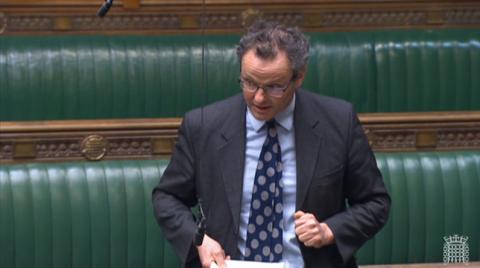Peter Aldous seeks assurance from the Government that it is committed to the collaborative partnership needed between the private and public sectors to ensure the transition of offshore energy from fossil-based fuels to renewables brings investment and jobs to communities all around the UK.
The Waveney constituency and across East Anglia much is being achieved through harnessing natural resources. Parts of one of the largest clusters of offshore wind farms in the world are either in operation, being built, or being planned. 4GW of power is already operational off the East Anglian coast, accounting for over 50% of the UK’s installed capacity.
This success is being mirrored in energy hot spots around the UK and, with potential developments in the pipeline, we will be able to provide much of the Government’s newly revised higher target of 40GW by 2030 and subsequently 75GW by 2050.
The Government must work collaboratively with local communities and industry when developing the regulatory framework to ensure that industry is not disadvantaged.
There are a number of opportunities for the oil & gas sector as the UK transforms to net zero carbon emissions. The sector has an ongoing role in providing energy security and it clearly reduces carbon footprint to use UK oil and gas rather than imports. The industry can act as a bridge to a low-carbon future, promoting the use of gas, hydrogen and carbon capture, utilisation and storage. There are transferable skills to the offshore renewables sector and, finally, the large amount of work in the decommissioning of oil and gas assets in the North Sea.
Nuclear energy also has an important part to play in providing long-term low-carbon energy security and it is important we press ahead with projects such as Sizewell C in Suffolk.
Finally, with the UK having 50% of Europe’s tidal energy and 35% of its wave energy, the UK is in pole position to be the world leader in this sector, which could contribute to the UK’s future energy mix, further improving self-sufficiency. We should support these emerging technologies to bring down their costs, and consider funding arrangements to support them in their early stages, as we did with solar and wind.
Peter Aldous is working with Power for People and sponsoring the Local Electricity Bill to deliver more clean, local energy that benefits local communities.
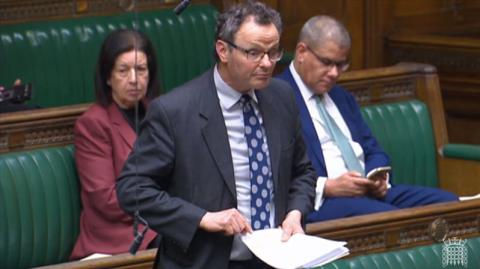
Peter Aldous acknowledges amendments put forward for Offshore Petroleum Licensing Bill designed to reduce flaring and venting of methane by new offshore installations, but takes the view that these issues are better negotiated by the independent North Sea Transition Authority (NSTA) which has a good record on delivering net zero, works with the industry and is not impeded by the four-to-five-year political cycle.
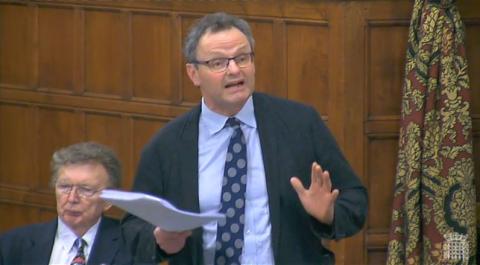
Peter Aldous calls on the Government to develop a national coastal strategy to make the most of coastal communities’ significant potential for job creation in the renewable energy, tourism, fishing and maritime sectors. Specifically, locally, he calls on the Government to adjust the Lowestoft enterprise zone boundaries, invest in education and skills and very importantly at the current time coastal defences.
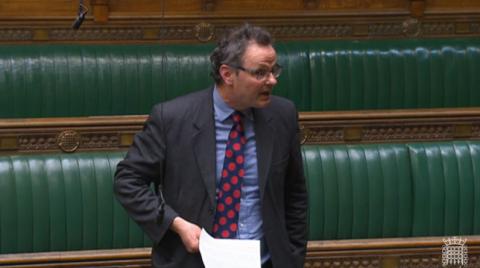
Peter Aldous outlines the reasons why he is supporting the Bill, but he cautions that it must be part of a wider long-term strategy that is required to attract the private investment needed to modernise and decarbonise our energy system.
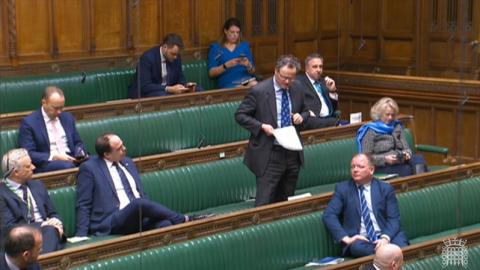
Peter Aldous highlights the potential East Anglia, Suffolk and Lowestoft have to significantly contribute to UK energy security, affordability, and net zero goals through projects like Sizewell C, offshore wind, and hydrogen. He calls on the Government to invest in skills training at East Coast College and infrastructure upgrades in Lowestoft port to ensure that this huge potential is recognised.
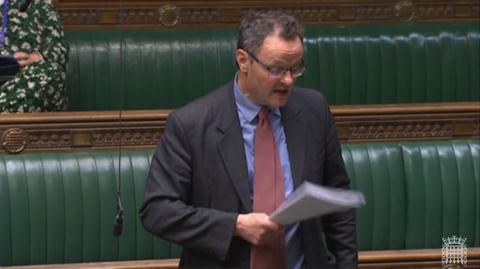
Peter Aldous welcomes the 110 measures to boost growth introduced by the Chancellor in his Autumn Statement and highlights three areas that he believes need further work: investment in skills, protecting the most vulnerable, and levelling up the east of England - particularly in relation to renewable energy and coastal erosion.
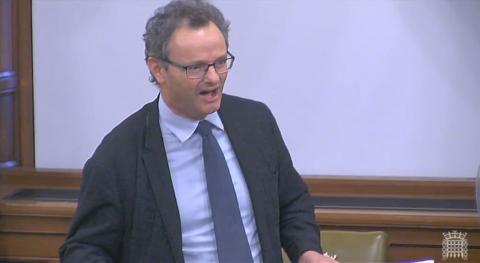
Peter Aldous makes the case for the introduction of an energy social tariff to protect vulnerable households in an era of high energy bills and backs calls for a consultation on the form that the tariff should take to be undertaken straightaway.
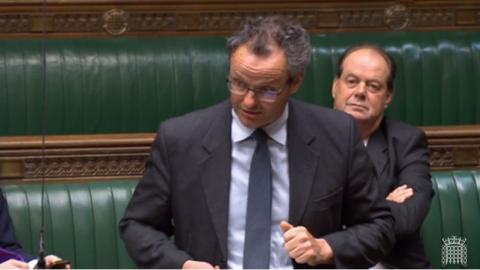
Peter Aldous welcomes the launch of the Great British Insulation Scheme and calls on the Government to introduce measures such as energy-saving stamp duty and an employee benefits scheme to kickstart a mass retrofitting revolution.
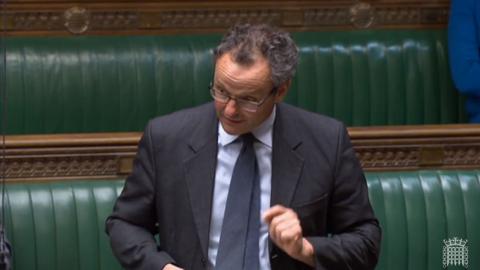
Peter Aldous questions the Government about the contracts for difference scheme for offshore energy and seeks assurances that the Government is working with the industry to ensure a successful round 6 so that offshore wind can get back on track, and UK consumers and the UK economy can benefit from low-cost, low-carbon energy.



